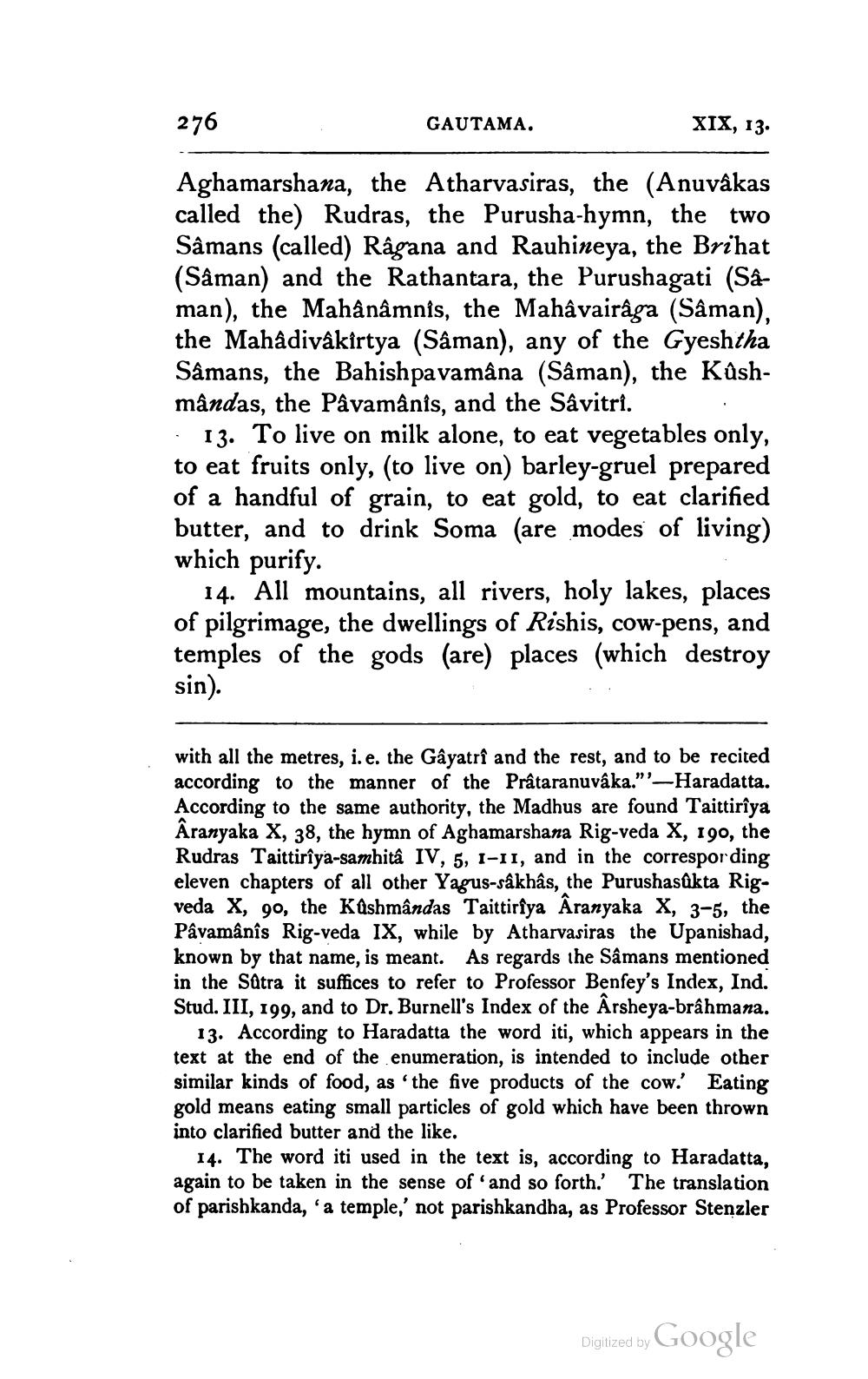________________
276
GAUTAMA.
XIX, 13.
Aghamarshana, the Atharvasiras, the (Anuvâkas called the) Rudras, the Purusha-hymn, the two Sâmans (called) Râgana and Rauhineya, the Brihat (Sâman) and the Rathantara, the Purushagati (Saman), the Mahânâmnis, the Mahâvairâga (Sâman), the Mahâdivâkîrtya (Saman), any of the Gyeshtha Sâmans, the Bahishpavamâna (Sâman), the Kûshmândas, the Pâvamânts, and the Savitri. . · 13. To live on milk alone, to eat vegetables only, to eat fruits only, (to live on) barley-gruel prepared of a handful of grain, to eat gold, to eat clarified butter, and to drink Soma (are modes of living) which purify.
14. All mountains, all rivers, holy lakes, places of pilgrimage, the dwellings of Rishis, cow-pens, and temples of the gods (are) places (which destroy sin).
with all the metres, i.e. the Gayatri and the rest, and to be recited according to the manner of the Prâtaranuvâka."'-Haradatta. According to the same authority, the Madhus are found Taittirîya Aranyaka X, 38, the hymn of Aghamarshana Rig-veda X, 190, the Rudras Taittirîya-samhita IV, 5, I-II, and in the correspor ding eleven chapters of all other Yagus-sâkhâs, the Purushasûkta Rigveda X, go, the Kashmândas Taittiriya Aranyaka X, 3-5, the Pâvamânîs Rig-veda IX, while by Atharvasiras the Upanishad, known by that name, is meant. As regards the Sâmans mentioned in the Sätra it suffices to refer to Professor Benfey's Index, Ind. Stud. III, 199, and to Dr. Burnell's Index of the Arsheya-brâhmana.
13. According to Haradatta the word iti, which appears in the text at the end of the enumeration, is intended to include other similar kinds of food, as the five products of the cow.' Eating gold means eating small particles of gold which have been thrown into clarified butter and the like.
14. The word iti used in the text is, according to Haradatta, again to be taken in the sense of and so forth. The translation of parishkanda, 'a temple,' not parishkandha, as Professor Stenzler
Digjized by Google




